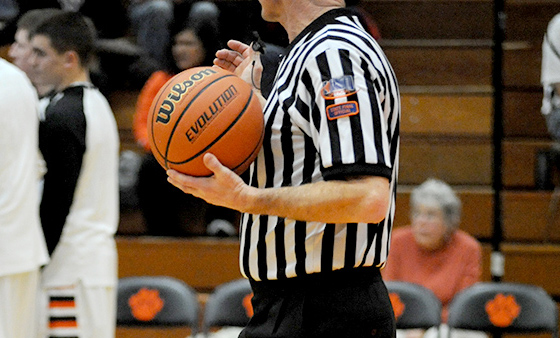The 13 deadly sins for athletic directors
With all of the responsibilities that an athletic director has, and all the time they spend on them, they still leaves plenty of room for mistakes.
To survive and flourish in an athletic program, athletic directors will surely be called upon to face some of the biggest problems in the house. We call them the “10 deadly sins,” and unless you go on and conquer most or all of them, you’re going to be in big trouble.
 Here is my list of the 10 deadly sins for athletic directors.
Here is my list of the 10 deadly sins for athletic directors.
1. Failing to plan, or poor planning.
It’s imperative to set up timelines and use “to-do lists.” The development of organizational skills is essential in keeping pace with the enormous responsibilities you will be called upon to face.
2. Procrastinating.
Putting off difficult or unpleasant tasks while deadlines are approaching can pose a huge problem for some ADs. When setting up timelines, you should provide yourself with a buffer for interruptions and problems. Another good technique is to break projects into small, workable parts. Upon completing one of these tasks, give yourself a break or a reward, and go on to something that you enjoy.
3. Lacking professional courtesy.
Make sure that you return phone and email messages. This is a must in professional settings and often provides the basis on which you are judged. Professional courtesy should also include thanking individuals — parents, coaches and other ADs. Don’t assume anything or take anyone for granted, and always be polite. This admittedly can be tough with some of the people you may have to deal with, but it is absolutely necessary.
4. Taking action before thinking things through.
Always consider alternatives and potential outcomes. Don’t overreact, have patience, and put yourself in other positions. Try to see all sides and the perspectives of an issue. This will help you make an informed and sound decision.
5. Failing to keep your word.
If you promise to do something, do it. Trust and respect are based upon your ability to follow through, and without these two traits you cannot succeed. Your professional working relationships are usually based upon these traits. If you don’t currently have the time for something in your schedule, explain this to the person you are dealing with and promise to tackle it in a few days.
6. Thinking that you have all of the answers.
There will always be something new to learn. It could be a new technology, for example. You should never turn away. Once you stop being receptive, you stop learning. Your athletes, coaches and programs deserve the very best, and this means constantly expanding your knowledge and background. The favorite expression of one of the principals with whom I worked was, “Learning is a lifelong pursuit.” This very definitely applies to athletic directors.
7. Being afraid or too stubborn to ask for help.
Everyone will need help at some point. We aren’t superheroes, and it’s not a sign of weakness to ask for help. You should also be prepared to return the favor.
8. Trying to be liked.
Someone will usually be unhappy with some or many of our decisions, efforts or position on issues. This is natural, and we can’t let it interfere with doing what is right. While we all want to be liked and accepted, it’s more important to be respected and trusted.
9. Assuming that everyone understands.
When elucidating a responsibility or reasons surrounding a decision, you have to make sure that everyone is on the same page. The complexity, possible changes, and the different backgrounds of the individuals involved make this a necessity in order to be efficient and maintain a level of excellence.
10. Failing to back up your computer documents.
It has been said that there are two types of hard drives: Those that have crashed, and others that could go at any time. For the little time that it actually takes to back up your documents, you can’t take the chance of losing them. Due to the importance and sheer number of items on your hard drive, you can’t afford to start from scratch.
11. Worrying about things that are out of your control.
Time is so valuable that it can’t be wasted on things you cannot change. It is better and more productive to work on tasks that are your responsibility and that you can do something about.
12. Wishing your life or career away.
While we all experience problems and difficult periods in our positions, time is finite and cannot be recaptured. Since we have a limited number of seasons and years in our career, we should try to find something positive and enjoyable in everything.
13. Lowering expectations when confronted by naysayers.
In our positions, there will be days that are just plain overwhelming. But we cannot allow negative, complaining individuals to deter our efforts with words or phrases such as “can’t” or “it won’t work.”
David Hoch, CMAA, has 16 years of experience as a high school athletic director and served for 12 years as the executive director of the Maryland State Coaches Association. In 2000, he was named Athletic Director of the Year by the Maryland State Athletic Directors Association. His column, A.D.ministration, focuses on issues in athletic administration and appears regularly in Coach & Athletic Director magazine.





